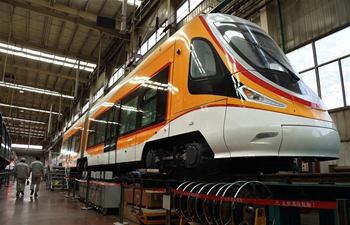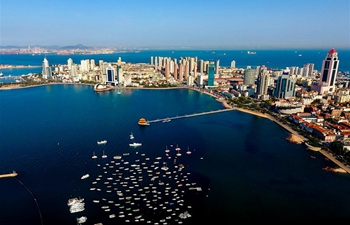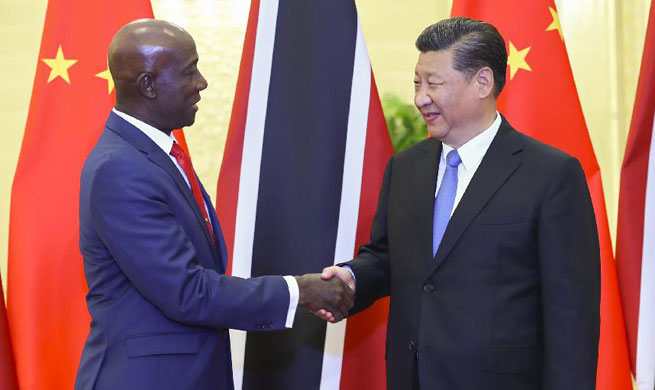GENEVA, May 15 (Xinhua) -- Technologies on the frontier of what is possible can boost the agenda of the Sustainable Development Goals (SDGs) and help find 21st-century global solutions for economic social and environmental challenges, says a UN report published Tuesday.
The United Nations Conference on Trade and Development (UNCTAD) report is titled, "Technology and Innovation Report 2018: Harnessing Frontier Technologies for Sustainable Development."
"Frontier technologies hold the promise of reviving productivity and making plentiful resources to end poverty for good, enable more sustainable patterns of growth and mitigate or even reverse decades of environmental degradation," UNCTAD Secretary-General Mukhisa Kituyi said in a statement.
He said technological change and innovation need to be directed through efforts by governments in collaboration with civil society, business, and academia.
The report says frontier technologies are converging through the increasing use of digital platforms to produce new combining technologies, accelerating the pace of change across multiple sectors.
The report cites examples of how frontier technologies can improve lives in developing countries.
One is the use of big data analysis in helping to respond to outbreaks of deadly diseases: say, during a typhoid outbreak in Uganda.
There the health ministry used data-mapping applications to facilitate decision-making on the allocation of medicine and mobilization of health teams and develop insurance products for small-scale African farmers.
In another example, 3D printers are being used in developing countries such as South Africa to produce prosthetic limbs that are custom-built and cheaper.
The report says artificial intelligence is reading digital scans more accurately than doctors, freeing them for care in which the human touch is important.
The internet is allowing farmers to monitor soil conditions to decide when the best time to plant is.
The report calls for a concerted international effort to build technological capabilities and to support innovation in developing countries.
Least developed countries should receive international support to build their domestic capabilities and create an enabling environment necessary for frontier technologies to deliver.
But the report also notes that the spread of new technologies threatens to outpace the ability of societies -- and policymakers -- to adapt to the sweeping changes that they generate.
"By recognizing the immense benefits of new and emerging technologies, and identifying and addressing the risks sensibly, we can overcome the fears and anxieties raised by accelerated technological, economic and social change," said Shamika N. Sirimanne, UNCTAD's director of technology and logistics.

















